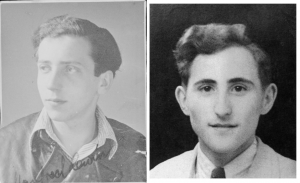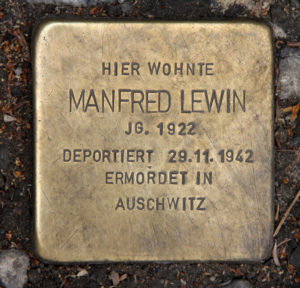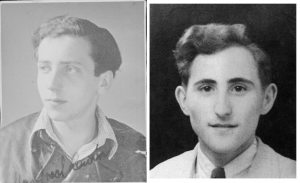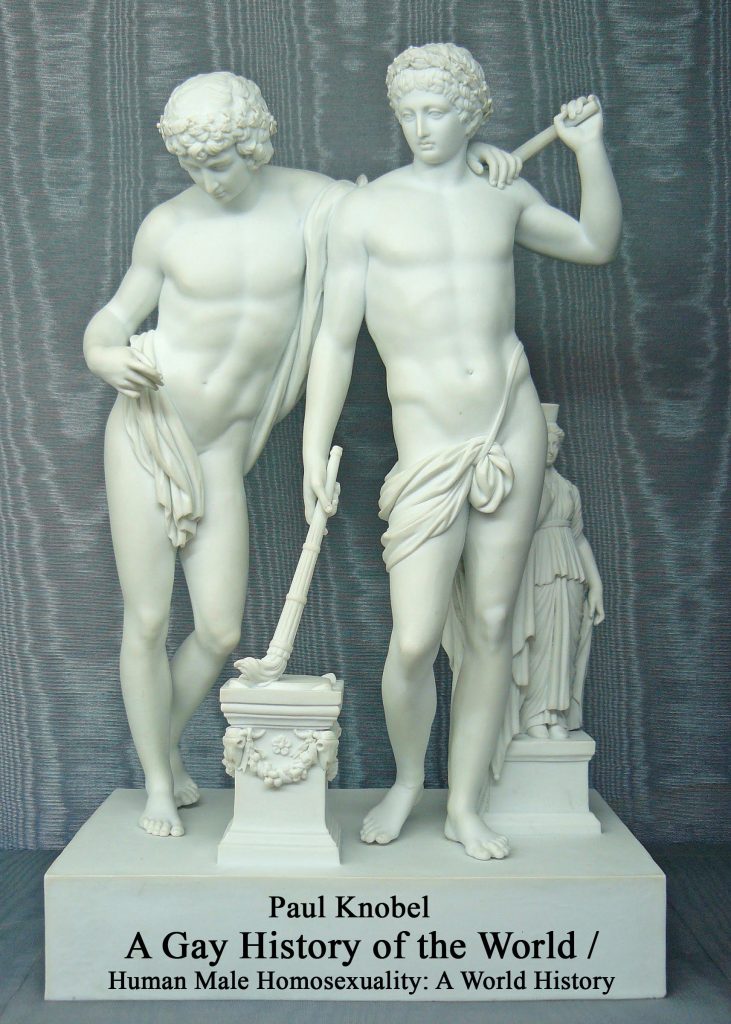THERE ARE not many people in history as cool as Gad Beck, a gay Jewish resistance leader in Nazi Berlin. Beck was only half Jewish, which is probably what kept him and his family alive. But he used his relatively protected status to become a major thorn in the Nazis’ side, serving as the lynchpin of a system that kept many of the last surviving Jews in the city hidden, fed, and alive.

This was of course a very risky thing to be doing, and the story of his wartime years is full of horrible events—friends arrested, tortured, murdered—and astonishing escapes. Probably the coolest—and saddest—Beck story occurred in 1942, when his great love, a boy called Manfred Lewin, was arrested along with his family. Beck was out of his mind with fear and grief, and he ran to the factory where Lewin had been doing forced labor to ask his boss for help. Obviously, the boy had guts, eh? But in fact the boss was not a Nazi and was happy to help if he could. His son was in the Hitlerjugend (ironies abound), so he told Beck to borrow his uniform and see if he could do something to save Lewin. And he did, at least temporarily. He went to the prison where they were being held and—with some poorly concocted story about keys that Lewin had supposedly failed to leave at work—convinced the commandant to release Lewin into his custody. In short, he managed to walk out of the prison with Lewin in tow! But here’s the kicker. In 1942, people didn’t yet know about extermination camps. After a few minutes of freedom, Lewin said that he couldn’t let his parents be deported to a ghetto in Poland without his help. So he went back, never to be seen again.
And this is only one of Beck’s hair-raising deeds during the war. Eventually the Gestapo found out about his organization and arrested him and a later boyfriend, Zwi Abiram. They were interrogated by the Gestapo, and Abiram was beaten severely. In fact, they were probably trying to break Beck by making him listen to Abiram’s screams. But Beck was too canny for them. He kept up an elaborate system of lies, and they never managed to find any of the 63 Jews that he was protecting. And for some reason, they didn’t torture or kill him. No one knows why: maybe it was so close to the end of the war that they were afraid to kill a somewhat famous person. It may also have helped that Beck recognized one of the Gestapo officials as an old customer of his father’s cigarette business (can you imagine?). Once he and his sister would bring cigarettes to the man’s newspaper stand, and the man and his wife would kiss them and give them candy! In a gap in the interrogation, Beck spoke to him about this improbable connection.
Eventually—after being pulled out of the rubble of the prison after a bombing raid—Beck and Abiram were the last people left in a basement cell in an abandoned Gestapo prison, as the Russians closed in on East Berlin. The story has a dramatic ending. A Russian soldier came into their cell, saw them, and reached into his pocket, bringing out not a gun but a card with the question, in German, “Is there someone here called Gad Beck?” And when Beck indicated that it was him, the soldier said to them, in Yiddish, “Brieder, ihr seyd frei” (“Brothers, you are free”). Pretty amazing.
Beck’s wartime memoir An Underground Life: Memoirs of a Gay Jew in Nazi Berlin, is a wonderful book that gives you an inside view of what it was like in Nazi Berlin, including several major events at which Beck was present. It is, of course, truly horrifying at times, but also a very charming book because of Beck’s delightful personality.
 Let me close by mentioning something that you can see if you find yourself in Berlin. Over the last 27 years, the artist Gunter Demnig has placed thousands of bronze plaques throughout Europe, fixing them to the sidewalk in front of the house of someone who was murdered by the Nazis with the person’s name and dates. They are slightly raised and called Stolpersteine, “stumbling blocks.” Today there are 70,000 of them. This year, when I was in Berlin for New Year’s, I happened upon the plaque for Beck’s great love Manfred, right in the old Jewish quarter in Berlin, around the corner from the Alexanderplatz.
Let me close by mentioning something that you can see if you find yourself in Berlin. Over the last 27 years, the artist Gunter Demnig has placed thousands of bronze plaques throughout Europe, fixing them to the sidewalk in front of the house of someone who was murdered by the Nazis with the person’s name and dates. They are slightly raised and called Stolpersteine, “stumbling blocks.” Today there are 70,000 of them. This year, when I was in Berlin for New Year’s, I happened upon the plaque for Beck’s great love Manfred, right in the old Jewish quarter in Berlin, around the corner from the Alexanderplatz.
Interested in learning more about our gay Jewish hero, and about gay Berlin in general? Join us for Oscar Wilde Tours’ Gay History and Art Tour of Berlin and Amsterdam, July 25-August 1, 2019. We’ll be there for Berlin’s amazing Pride celebration. Or join our other gay history and art tours in Italy and Greecethis fall. Learn about the gay gods and heroes of Antiquity!





